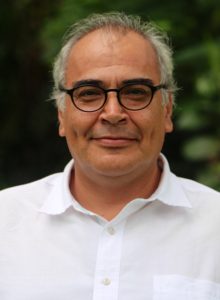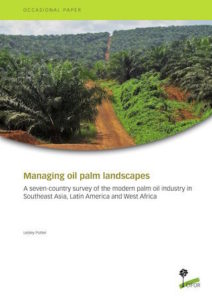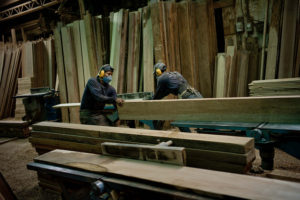
By Pablo Pacheco, Coordinator of Flagship 5, Global Governance, Trade and Investment, of the CGIAR Research Program on Forests, Trees and Agroforestry. See more stories on partnerships here.
For the Flagship on Global Governance, Trade and Investment, I would like to highlight how instrumental the partnership between the Center for International Forestry Research (CIFOR) and the French Agricultural Research for Development (CIRAD) has been in developing the whole theme. While CIFOR has a strong emphasis on applied policy research, CIRAD has brought to the program diverse capacities for conducting forestry, agricultural and economic research.
In general, the reason partners want to engage with us is because they recognize the factors that define our program, and see an opportunity in working in collaborative ways.
Some progress has been made with regards to integrating our work on global value chains around key commodities with research on farmer systems and livelihoods conducted by the World Agroforestry Centre (ICRAF). These two research streams ideally complement each other.
We have consolidated an effective partnership with Utrecht University in the Netherlands, with the International Development Studies (IDS) and Copernicus institute. These relationships are about developing ideas, implementing research, and supporting social learning on the impacts of large-scale investments on smallholder agriculture, and options for more inclusive business models. We are making progress in supporting some learning platforms around specific initiatives.
We also collaborate with the Center for Development Research (ZEF) at the University of Bonn, which allows us to bring in some more specialized knowledge for assessing the economic implications of key agricultural commodities and their conservation and livelihood trade-offs. Together with the International Institute for Applied Systems Analysis (IIASA) we work on analyzing the implications of oil palm development under different probable future scenarios.

In addition, we have established partnerships with universities in the countries on which we tend to focus our work such as the Bogor Agricultural Institute (IPB) in Indonesia, and the University of Sao Paolo (USP) in Brazil. These universities contribute with researchers quite knowledgeable of their national realities and support our efforts on policy engagement.
It is very difficult to build meaningful partnerships in situations in which there is no long-term alignment of institutional objectives and research agendas, so some partnerships are more spurious than others, which is often the case on partnerships built around specific projects.
For the new phase we therefore look for long-term alignment with some partners with which we share objectives of co-production of knowledge aimed at informing development initiatives and policy dialogues. The FP provides an interesting network of partners and people with different backgrounds and expertise working across a diverse set of key select countries.
We have initiated some new partnerships based on common topics of interest with organizations supporting development actions, such as with the SNV Netherlands Development Organization, which has a vast experience in promoting inclusive business models involving different stakeholders. Our aim is to distil some of the knowledge already available.

Workers in a timber yard that sells wood from the Amazon, Quito, Ecuador. Timber is one of the commodities that FTA researchers focus on. Photo: Thomas Munita/CIFOR
The Finance Alliance for Sustainable Trade (FAST), a network of financial institutions ranging from the Dutch Rabobank to microfinance institutions in developing countries, has showed interest in contributing to our work. They are going to become a quite important partner in developing our research on finance, mainly aimed at reaching smallholder farmers.
In addition, we are increasingly looking for partnerships with business sector initiatives (e.g. TFA 2020), as well as with multi-stakeholder processes, mainly expressed in commodity roundtables and certification systems. For example, we support the Forest Stewardship Council (FSC) and the Roundtable for Sustainable Palm Oil (RSPO), as well as ISEAL Alliance that constitutes the global membership organization for sustainability standards. We want to extend these partnerships to cover other initiatives driven by the private sector in specific countries.
What we do in each country is strongly connected to the work already being undertaken by partners at different levels, including academia, to build credibility and achieve policy impacts. In every one of these countries, we collaborate with a diverse range of partners and maintain strong linkages with ministries and government agencies. It is important to build such partnerships, even though it may take long processes to consolidate them.
Robert Nasi: Partnerships make forests, trees and agroforestry program work
Long-term relationships and mutual trust—partnerships and research on climate change
The best science is nothing without local voices: Partnerships and landscapes
Influence flows both ways: Partnerships are key to research on Livelihood systems











